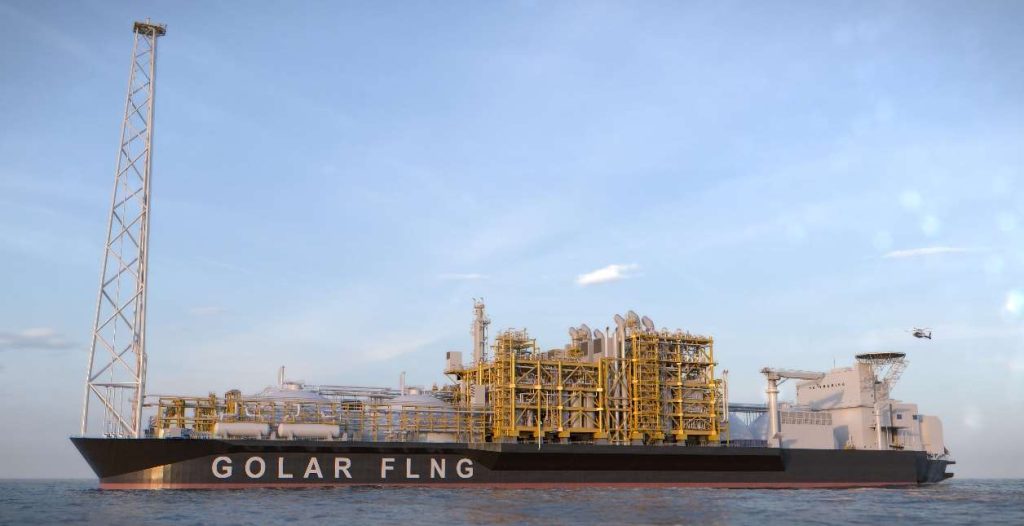This story requires a subscription
This includes a single user license.
Golar announced the final investment decision on the FLNG project on Wednesday.
Under the deal with CIMC Raffles, Black & Veatch will provide its licensed PRICO technology, perform detailed engineering and process design, specify and procure topside equipment, and provide commissioning support for the FLNG topsides and liquefaction process.
This is similar to Black & Veatch’s role in the construction of Golar’s existing assets, the FLNG Hilli and FLNG Gimi.
Last month, Golar said it expects to enter into a yard EPC contract to convert Fuji LNG into an FLNG within the third quarter of this year.
The Golar MK II design is an evolution of the MK I design of FLNG Hilli and FLNG Gimi.
The MK II design allows for a modularization of the construction process as well as further efficiency and operability advances based on learnings from previous experience on constructing and operating Golar’s existing FLNG assets.
$2.2 billion
Golar said the total EPC price is $1.6 billion, but the total budget for the MK II FLNG conversion is $2.2 billion.
This includes vessel conversion, yard supervision, spares, crew, training, contingencies, initial bunker supply, and voyage related costs to deliver the FLNG to its operational site, excluding financing costs.
Golar expects to take delivery of the MK II FLNG in the fourth quarter of 2027.
Out of the total conversion price, Golar has already spent $0.3 billion to date inclusive of the conversion candidate, engineering, and long lead items which are now 63 percent complete.
Second FLNG
Golar concluded yard selection for the MK II FLNG conversion two years ago.
CIMC, Black & Veatch, and Golar have subsequently spent about 350,000 man-hours optimizing the conversion process and de-risking project execution, it said.
As part of the EPC agreement Golar has also secured an option for a second MK II FLNG conversion slot at CIMC for delivery within 2028.
Golar said that the 2027 delivery will make the MK II FLNG the earliest available floating liquefaction capacity globally.
Based on potential charter terms in line with the most recent long-term FLNG charter agreements, the MK II FLNG has earnings potential of about $ 0.5 billion of adjusted annual Ebitda, before commodity exposure, Golar said.
Boosting floating liquefaction capacity
Golar CEO, Karl Fredrik Staubo said the ordering of the MK II FLNG “strengthens Golar’s position as the market-leading owner of FLNGs, increasing our controlled liquefaction capacity by about 70 percent to 8.6 mtpa.
“With a delivered price of around USD 600/ton of liquefaction capacity and an attractive Q4 2027 delivery, we believe today’s FLNG order is well positioned to offer prospective clients an attractive time-to-market to enable gas monetization, whilst driving value for Golar,” he said.
“We look forward to working with CIMC and Black & Veatch towards another successful FLNG delivery and hope to further expand the relationship with potential additional MK II FLNG units,” Staubo said.
The CEO recently said Golar LNG is looking to grow the company’s fleet with a target to more than double its operating FLNG capacity by 2030.
Golar currently operates the 2.4 mtpa Hili, which works offshore Cameroon, and the 2.7 mtpa Hilli, which will serve BP’s Greater Tortue Ahmeyim FLNG project offshore Mauritania and Senegal.
He said the company sees further earnings growth from increased capacity utilization on Hilli when redeploying from her existing charter which ends in July 2026 to the announced 20-year charter in Argentina with an estimated startup in Q1 2027.

